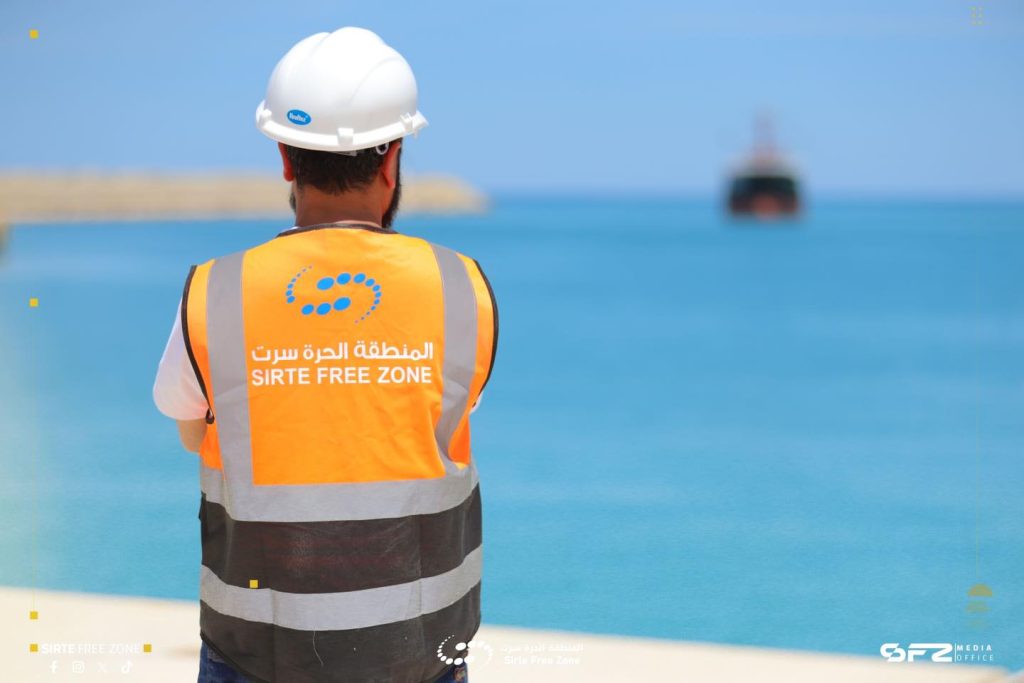
The Sirte Free Zone enjoys a set of competencies and powers that enable it to achieve its development goals, in accordance with the Transit Trade and Free Zones Regulation Law No. 9 of 2000. The most prominent of these specializations:
- Attracting local and foreign investments: Encouraging capital to establish industrial and commercial projects within the region by providing an encouraging investment environment free of bureaucratic complexities. The zone provides incentives and facilities for investors, making it an attractive destination for projects from inside and outside Libya.
- Infrastructure Management and Development: Overseeing the implementation of infrastructure development projects within the region, including the development of ports, docks, storage warehouses, and transportation networks. The region has the authority to invest transformation budgets or enter into investment partnerships to complete critical infrastructure projects.
- Logistics Commercial Services: Providing a full package of services to investors and operators in the region, including port services such as maritime guidance, steveh and docking works, as well as warehousing, warehouse management and administrative offices. These services aim to facilitate the movement of goods and their efficient handling.
- Establishment and Management of Subsidiaries: The zone has the right to establish companies or investment entities within its scope to support its various activities, and it can also contribute to the capital of projects established in partnership with the private sector. This flexibility allows the region to enter into strategic partnerships and accelerate development across diverse business models.
- Security and Service Coordination: Coordinate with the competent authorities to ensure the provision of security, firefighting, rescue, ambulance and healthcare services within the boundaries of the Free Zone. This ensures a safe and stable working environment for investors and workers alike.
- Localization of technology and knowledge: Working to attract modern technology and technical knowledge and localize them in the region’s projects, whether in the operation of the port, factories or services. This also includes training and qualifying national cadres to acquire new skills, which strengthens the local expertise base and contributes to the creation of specialized jobs for Libyan youth.
These and other competencies are exercised in accordance with the laws and regulations regulating transit trade and free zones, so that the administration has a great deal of flexibility to take decisions that serve the interest of the zone and achieve a balance between the interests of investors and the national economy.

 then 'Add to home screen'
then 'Add to home screen' then 'Add to home screen'
then 'Add to home screen'